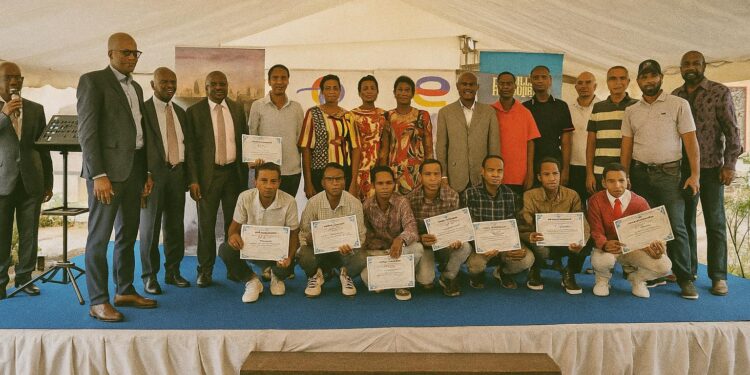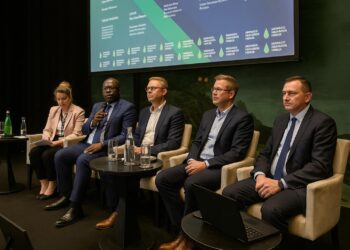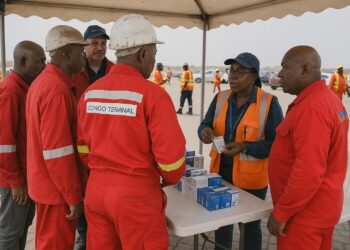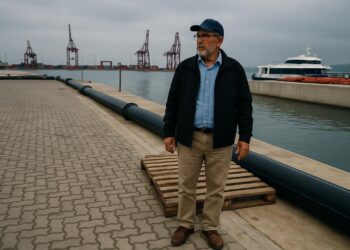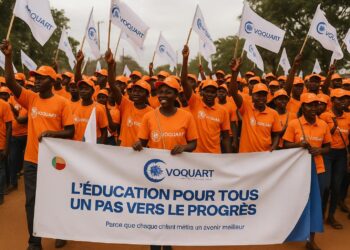Corporate Skills Transfer and Local Empowerment in Djeno
When the first twelve graduates stepped onto the podium of the Centre d’Éducation, de Formation et d’Apprentissage aux Métiers de Maintenance Industrielle in Pointe-Noire, the applause resonated far beyond the confines of the hall. Their nine-month trajectory, financed in full by TotalEnergies EP Congo and operationally supported by Dietsmann, embodies a deliberate shift in corporate practice: a move from episodic philanthropy to an embedded local-content strategy. While the figures are modest in absolute terms, the symbolism is powerful in a district where the International Labour Organization records youth unemployment hovering around 21 percent (ILO 2023).
The curriculum blended rigorous classroom instruction with field immersion on Dietsmann work sites in Djeno, ensuring that theoretical competencies in industrial refrigeration, electrical systems and mechanical maintenance were stress-tested under real production pressures. By awarding nationally recognised certificates, the programme offers graduates immediate portability of their new credentials across the Congolese and regional markets.
Strategic Alignment With National Youth Policies
Brazzaville’s current Development Plan 2022-2026 assigns priority to strengthening technical and vocational education as a lever for diversifying an economy still heavily dependent on hydrocarbons. The Ministry of Technical and Vocational Training has repeatedly argued that private-sector operators must become ‘co-architects’ of the skills ecosystem. In that light, TotalEnergies’ initiative dovetails neatly with governmental objectives without displacing public prerogatives. Local authorities, represented at the ceremony by the administrator-mayor of Ngoyo, were keen to emphasise that the training reduces migratory pressure towards the capital and stabilises communities adjacent to strategic energy infrastructure.
Private–Public Synergies and Diplomatic Significance
For a multinational energy company operating large offshore assets, soft-power accumulation can be as critical as geological data. By demonstrating tangible social returns on its presence, TotalEnergies reinforces a climate of predictability that investors and diplomats alike consider indispensable. External observers recall that similar schemes in neighbouring Angola helped lower social-licence risks and eased contractual negotiations (World Bank 2022). In Congo-Brazzaville, where President Denis Sassou Nguesso has underscored the importance of industrial localisation in recent addresses, the programme functions as a complementary instrument of economic diplomacy. It nurtures a cadre of technicians who may populate future subcontracting chains, thereby anchoring value inside national borders.
Gender Dimensions in Technical Training
The presence of four young women among the twelve laureates marks a subtle yet meaningful departure from regional averages in heavy-industry apprenticeships. One of them, Ngolo Lenvo Sephora, candidly admitted that ‘the first weeks were daunting, especially for a woman in mechanics, yet I completed with highest honours’. Her testimony aligns with UNESCO data suggesting that female participation in African TVET programmes hovers below 20 percent (UNESCO 2023). By normalising female visibility in workshops and on-site maintenance teams, the initiative chips away at occupational stereotypes while broadening the talent pool available to the Congolese industrial sector.
Long-Term Economic Ripples for the Republic of Congo
Although twelve graduates cannot single-handedly transform a national labour market, the multiplier effect of even a small cohort should not be underestimated. Each certified technician becomes a potential mentor, entrepreneur or supervisor, diffusing know-how across informal networks that underpin much of the Congolese economy. Moreover, the cost absorption by TotalEnergies establishes a benchmark for other operators keen to demonstrate Environmental, Social and Governance credentials to global capital markets. As Lionnel Petyth, head of Support to Operations at TotalEnergies, observed during the ceremony, ‘the diplomas testify to an exacting journey and open new horizons’.
Economists at the African Development Bank estimate that one skilled industrial job can generate up to two ancillary positions in services and supply chains (AfDB 2024). Should subsequent cohorts scale to double or triple the current intake—a scenario hinted at by Dietsmann’s chief executive Jean-Baptiste Baray—the cumulative impact could ripple through Pointe-Noire’s urban fabric, easing pressure on public employment programmes and fortifying social cohesion.
Maintaining Momentum Beyond the Pilot Cohort
Sustaining the present momentum will hinge on three variables: predictable funding lines, continuous curriculum calibration to evolving industrial needs, and robust tracking of graduate outcomes. Early indications are encouraging; local authorities have reportedly requested expansion of the syllabus to include digital instrumentation and offshore safety modules. For now, the twelve newly minted professionals embody a deliberately cultivated interface between global energy capital and Congolese aspirations for inclusive growth. Their trajectory illustrates how a calibrated dose of corporate pragmatism can dovetail with national development priorities, offering a replicable model for other sectors targeting youth employability.

































